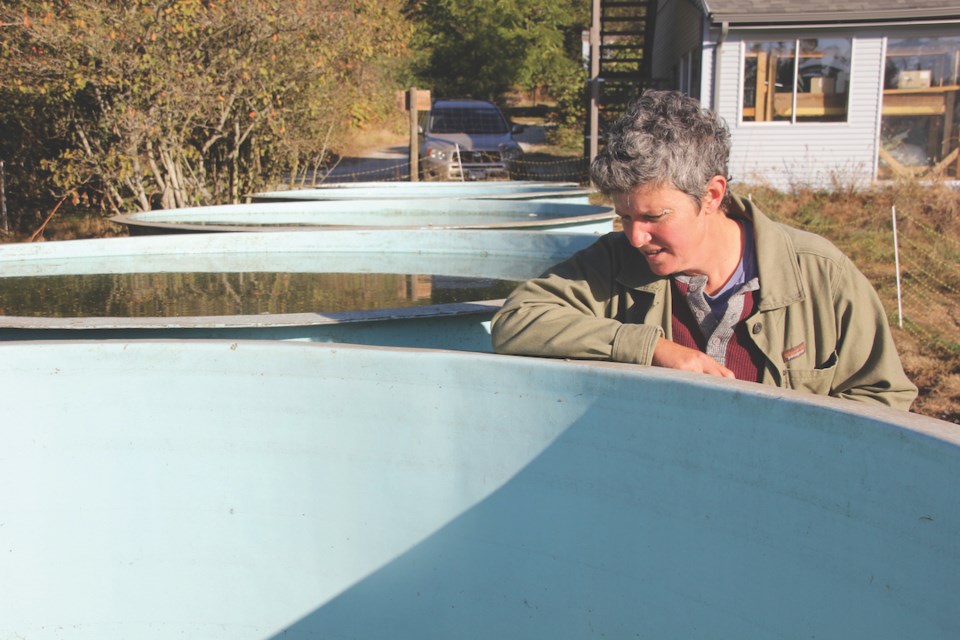Commercial farm food crops that rely on the area’s Chapman Water System may avoid outdoor water use bans set to come into force on Sept. 22.
A temporary change to allow commercial food producers outdoor water use during Stage 4 restrictions in 2023 and 2024 is on the agenda of the Sunshine Coast Regional District’s (SCRD) Sept. 14 board meeting. A proposal to provide those users full rather than a two week exemption at Stage 4 came forward from Area B (Halfmoon Bay) director Justine Gabias. It is to be voted on at the meeting slated for 1:30 p.m., following a commitee meeting at 9:30 a.m., which has a regional water supply update from staff included on its agenda
Long-term solutions need further discussion
Gabias’ notice of motion states “temporary relief is sought while a more permanent solution for commercial farm water use is developed." In that submission, she outlined that commercial farms face potential crop failure and soil erosion if irrigation is not allowed to continue. She states that “could lead to a reduction in food security on the Sunshine Coast."
“The issue of sustainable water supply for commercial farms is complex and will require additional time and resources,” according to Gabias’ motion.
At the board’s last regular meeting on July 27, amendments to water use regulations were approved. Those did not encompass an ask from the Sunshine Coast Farmers Institute presented to elected officials in January to exempt commercial farms from Stage 4 restrictions and to reduce water rates for outdoor uses on those properties. What changed in relation to farms in the bylaw were two definitions. Commercial farms were defined as parcels classified as farm land for taxation purposes under the B.C. Assessment Act and food crops were defined as plants grown on a commercial farm produced for consumption.
Area E director Donna McMahon voted in favour of those changes and asked for more. She called for further discussions on support for food growing on the Sunshine Coast in the board’s strategic planning process. The final meeting in that process is booked for Sept. 15, according to an email she sent to Coast Reporter.
Should treated drinking water be used on crops?
“Our local situation with farms and water is unusual”, McMahon wrote. She cited locally-based research that showed the average size of a lower Sunshine Coast farm at under four hectares compared to average sizes of 17 hectares on Vancouver Island and 132 hectares province-wide. While larger farms often have their own wells or surface water supplies most on the Coast are surrounded by residential subdivisions and rely on the region’s treated water supply to maintain outdoor crops. She pointed out that with small land parcels, it's “neither practical nor affordable for each property to drill its own well”.
When water restrictions to protect supplies for drinking and essential community are enacted, “therein lies the challenge,” for local food growers, she wrote.



